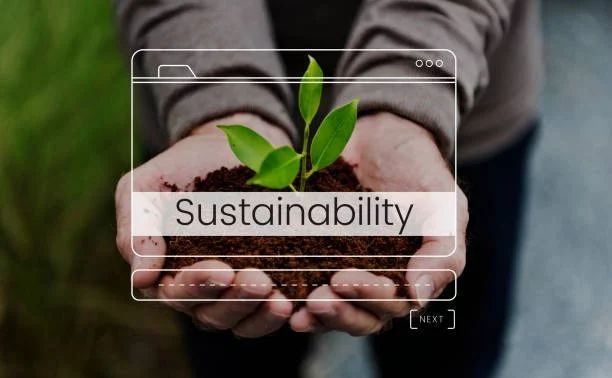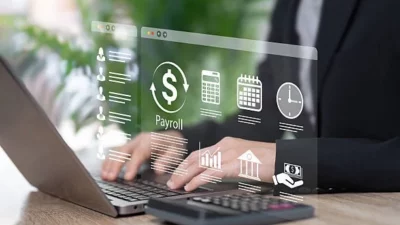In an era defined by unprecedented environmental challenges and a growing global consciousness, the concept of sustainability has transcended its niche origins to become a cornerstone of responsible business and societal development. The 21st century presents a unique confluence of technological advancement, interconnected economies, and pressing ecological concerns, making the integration of sustainable practices not just an ethical imperative but a strategic necessity. For professionals across all sectors, understanding and actively contributing to sustainability is no longer an optional add-on but a fundamental skill. This article explores why every professional should consider taking a sustainability course to navigate the complexities of the modern world and thrive in a future shaped by environmental stewardship.
The Evolving Professional Landscape
The professional world is rapidly adapting to the realities of climate change, resource scarcity, and increasing consumer demand for ethical products and services. This shift is evident in:
•Regulatory Changes: Governments worldwide are implementing stricter environmental regulations and policies, requiring businesses to comply with new standards for emissions, waste management, and resource utilization. Professionals equipped with knowledge from a sustainability courses can help their organizations navigate this complex regulatory landscape, ensuring compliance and avoiding penalties.
•Investor Pressure: Investors are increasingly scrutinizing companies’ environmental, social, and governance (ESG) performance. Businesses with strong sustainability credentials are seen as less risky and more attractive investments. Professionals who understand sustainability principles can contribute to improving their company’s ESG ratings, attracting capital and enhancing shareholder value.
•Consumer Demand: A growing segment of consumers prioritizes sustainable and ethically produced goods. Companies that demonstrate a commitment to sustainability can gain a competitive edge and build stronger brand loyalty. Professionals in marketing, product development, and supply chain management can leverage their sustainability course knowledge to meet these evolving consumer expectations.
•Innovation and Opportunity: The transition to a sustainable economy is driving innovation across industries. New technologies, business models, and markets are emerging in areas such as renewable energy, circular economy, and green finance. A sustainability course can equip professionals with the foresight and skills to identify and capitalize on these emerging opportunities.
The Business Case for Sustainability
Beyond ethical considerations, there is a compelling business case for integrating sustainability into core operations. Companies that embrace sustainable practices often realize significant benefits, including:
•Cost Savings: Implementing energy efficiency measures, waste reduction programs, and sustainable supply chain practices can lead to substantial cost savings. For example, optimizing resource use can lower operational expenses, while reducing waste can decrease disposal costs.
•Enhanced Reputation and Brand Value: A strong commitment to sustainability can significantly enhance a company’s public image and brand reputation. This can attract top talent, improve customer loyalty, and differentiate the company in a crowded marketplace.
•Risk Management: Climate change and environmental degradation pose various risks to businesses, including supply chain disruptions, increased operational costs, and reputational damage. Professionals with a deep understanding of sustainability can help identify, assess, and mitigate these risks, building more resilient organizations.
•Talent Attraction and Retention: Employees, particularly younger generations, are increasingly seeking purpose-driven work and prefer to work for companies that align with their values. Organizations with robust sustainability initiatives are more attractive to top talent, leading to improved recruitment and retention rates.
How Sustainability Courses Equip Professionals
A dedicated sustainability course provides professionals with the knowledge, tools, and perspectives necessary to integrate sustainable thinking into their daily work. These courses typically cover a wide range of topics, including:
•Environmental Science Fundamentals: Understanding the basic principles of ecology, climate science, and natural resource management is crucial for comprehending the scale and urgency of environmental challenges.
•Sustainable Business Models: Exploring innovative business models that prioritize environmental and social performance alongside financial returns, such as the circular economy, shared value creation, and impact investing.
•Policy and Governance: Gaining insights into national and international environmental policies, regulations, and governance frameworks that shape corporate and governmental responses to sustainability issues.
•Measurement and Reporting: Learning how to measure, monitor, and report on environmental and social performance using frameworks like the Global Reporting Initiative (GRI) or the Sustainable Development Goals (SDGs).
•Stakeholder Engagement: Developing skills to effectively engage with diverse stakeholders, including employees, customers, suppliers, communities, and investors, on sustainability-related matters.
Key Skills Gained from Sustainability Courses
Enrolling in a sustainability course offers professionals a unique opportunity to develop a diverse set of skills that are increasingly valuable in today’s job market:
•Systems Thinking: The ability to understand complex interdependencies between environmental, social, and economic systems, and to identify leverage points for positive change.
•Strategic Planning: Integrating sustainability considerations into long-term business strategies, identifying opportunities for innovation, and developing resilient operational plans.
•Data Analysis and Interpretation: Utilizing data to assess environmental impacts, track progress towards sustainability goals, and make informed decisions.
•Ethical Decision-Making: Navigating complex ethical dilemmas related to environmental and social responsibility, and making choices that align with sustainable values.
•Communication and Collaboration: Effectively communicating sustainability initiatives to internal and external audiences, and collaborating with diverse teams to implement sustainable solutions.
Conclusion
The 21st century demands a new kind of professional – one who is not only adept in their chosen field but also deeply aware of their role in fostering a sustainable future. A sustainability course is an invaluable investment for any professional looking to enhance their career prospects, contribute meaningfully to their organization, and become a part of the solution to some of the world’s most pressing challenges. By equipping themselves with the knowledge and skills to drive sustainable practices, professionals can unlock new opportunities, mitigate risks, and ultimately contribute to a more resilient and equitable world. The time to embrace sustainability education is now, as it is rapidly becoming a prerequisite for success in the modern professional landscape.

Lexy Summer is a talented writer with a deep passion for the art of language and storytelling. With a background in editing and content creation, Lexy has honed her skills in crafting clear, engaging, and grammatically flawless writing.



